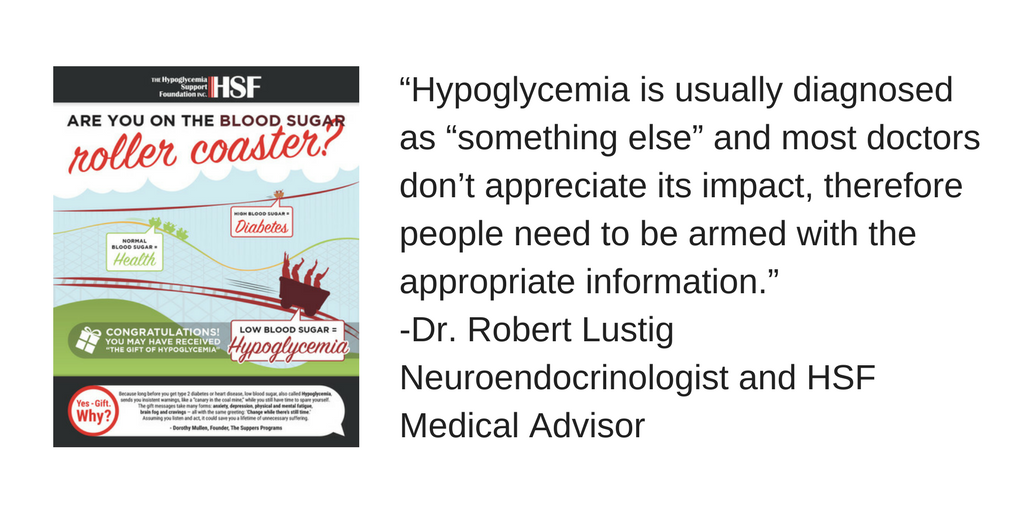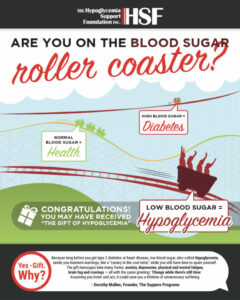“The low blood sugar of today is the diabetes of tomorrow.”
– Dr. Seale Harris
The root causes of most metabolic dysfunction are fundamentally the same – poor nutrition. The metabolic system is essentially our cellular engine, making (and destroying) all cells in our body. Hypoglycemia is on a long list of metabolic disorders that have a complex range of causes but are primarily food-related disorders. Hypoglycemia may be considered an early indicator of more advanced disease. The insight highlighted above by Dr. Seale Harris regarding hypoglycemia was prophetic – in the 1920s he understood the importance of viewing blood sugar dysfunction systemically. Low (and high) blood sugar are indicators that something is out of balance with the metabolic system (most likely disruption in blood sugar metabolism caused primarily by diet).
“…If you think you may be going crazy; if you have thoughts of suicide; if you’re constantly exhausted, anxious and depressed; if you go weeks without a decent night’s sleep; if your personality changes like the flip of a coin; if a counter full of munchies doesn’t satisfy your sweet tooth; and if your doctor thinks you might be a hypochondriac because medical tests don’t show anything physically wrong with you – don’t despair, there’s hope!”
–Roberta Ruggiero – The Do’s and Don’ts of Hypoglycemia: An Everyday Guide to Low Blood Sugar. (5th Edition)
Roberta knows this story well – she lived it. Decades ago, after having her two kids, she experienced years of debilitating symptoms that were poorly diagnosed and treated – and she was sent for shock treatment! In the end, all she needed to do was change her diet. This experience catalyzed her to become a life-long patient advocate, founding the Hypoglycemia Support Foundation in 1980.
The patient with low blood sugar is often confused or frustrated because they aren’t getting the appropriate information and instructions from their doctor on how to stabilize or control their hypoglycemia symptoms. Roberta exclaims: “If you’re lucky to get diagnosed, you may get one sheet of instructions. They don’t know any better because they are not told or taught about hypoglycemia in medical school. Exacerbating the problem is that only 30% of medical schools even require a course in nutrition! In 1960, the AMA did a turnabout and declared hypoglycemia a non-disease! Half of the correspondence I get is from frustrated patients who say their doctor doesn’t believe hypoglycemia exists! I’ve also been told, over and over again, “my doctor says just eat more sugar!”
“It is an alarming fact that countless Americans suffer – unsuspectingly – from the debilitating effects of hypoglycemia, a diet-related condition caused by low blood sugar. Unless the symptoms are diagnosed, a multitude of mental and physical disorders can go undetected.”
– Dr. Harvey M. Ross, Hypoglycemia: The Disease your Doctor Won’t Treat
Despite the fact that distinguished doctors and researchers have, for decades, been calling for hypoglycemia to be taken seriously, no official medical guidelines for diagnosing and treating reactive or functional hypoglycemia have been established. Looking seriously at unstable blood sugar (and what is driving it) at an early stage in the spectrum of disease states leading to more advance metabolic disorders provides an important opportunity for early intervention. However, lacking guidelines or even basic awareness, medical professionals dismiss the symptoms of low-blood sugar, and even worse, often make harmful recommendations, like getting quick fixes of processed carbs or sugary beverages – without addressing the root causes of the condition.
Many doctors and researchers have understood the progression of blood sugar and insulin dysregulation can ultimately lead to type-2 diabetes, and that adjusting patients to proper levels of carbohydrate restriction can reverse the process. Reactive hypoglycemia or low blood sugar is not the opposite of diabetes (high blood sugar). It is the same condition – just an earlier phase.
Dental disease and hypoglycemia are new being understood to be “canaries in the coal mine” of metabolic disease – indicators of systemic dysfunction. Understanding hypoglycemia in the context of overall metabolic health is key. So, pay attention to your blood sugar symptoms…and do your best to get your doctor to take this issue seriously – or find a doctor who will.
Here is a great infographic on the subject from https://hypoglycemia.org/info/
Just click on the image to view the whole infographic.
Wolfram Alderson is CEO of the Hypoglycemia Support Foundation. Once diagnosed as “pre-diabetic,” he has been able to eliminate low-blood sugar symptoms and reverse his declining metabolic health by focusing on real food.





Recent Comments